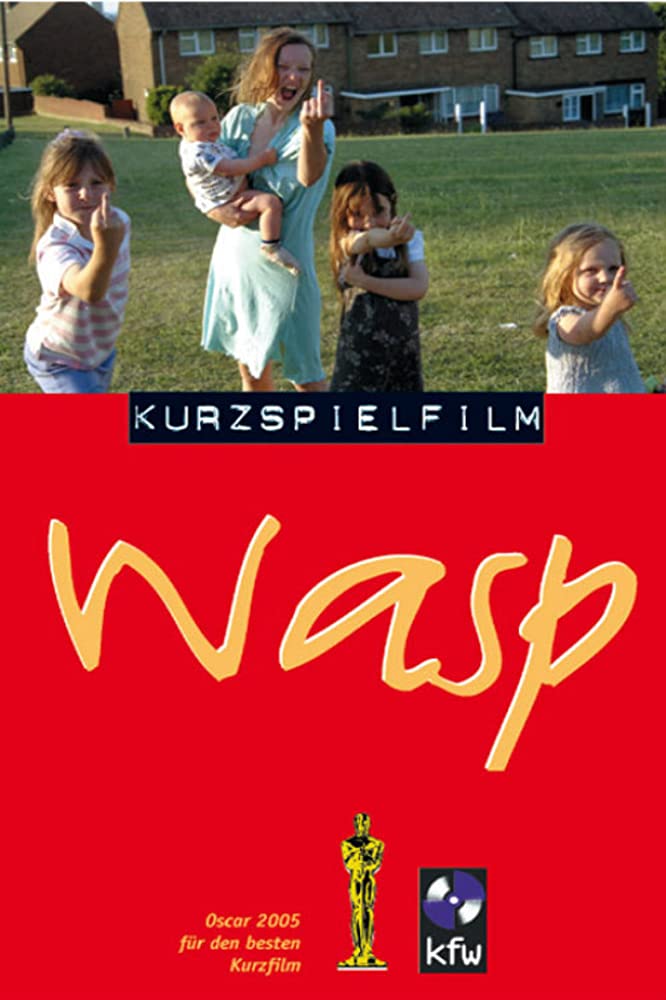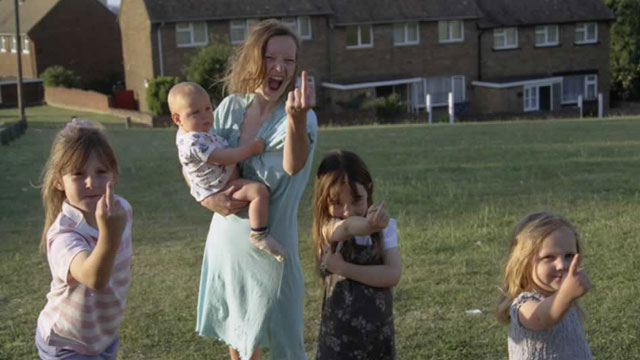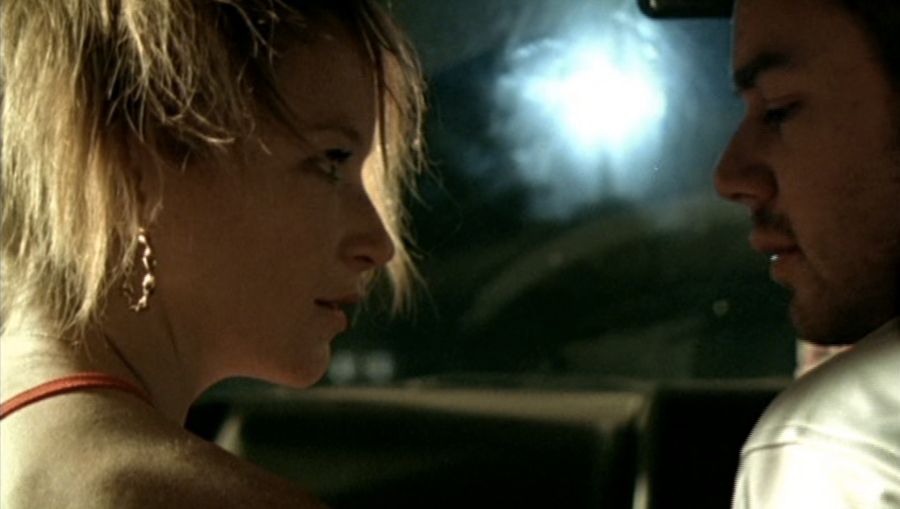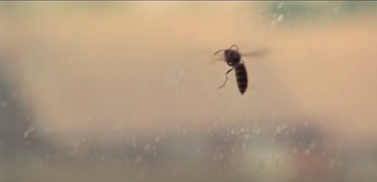
Narrative Structure
Wasp is a film about a single mother in England who has 3 kids and is forced to feed and care for them whilst trying to find a non existent social life all whilst being desperately poor. She meets an ex-boyfriend out of the blue and they arrange to go on a date but having lied to him about having kids at the thought he might be put off, she finds it difficult to take care of them whilst enjoying herself in the pub. All is revealed when there’s a cry for help from her child, forcing her to rush to their aid, revealing that she has children.

Genre
The film is a drama
Mise-en-scene
The mise-en-scene is used effectively throughout the film to show the depravity that Zoe and her children are living in. Moldy bread, pure sugar from a bag as a treat and eating a dumped pack of leftover takeaway ribs all add to a sense of disgust at the lives they are living.
Dirtiness is everywhere. From the children to the house, dirt is apparent wherever this family go, more than likely due to a lack of funds and time that result in a dysfunctional living accommodation. One child has dirt all over her face, presumably from food whilst the house is filled with junk and bland furniture that all add to this dirty.

Cinematography
The cinematography in this film is used effectively to show Zoe’s conflicting responsibilities and desires. The opening of the film when she fights with another mum who hit her child, close-ups without an establishing shot give the impression that we just jumped into the middle of her life and what she has to deal with on a regular occasion. The handheld cameras also give a shaky and amateur appearance that suggests she has a busy life with few opportunities to relax. The cinematography shifts from being shaky at the end of the film however as she begins to find stability when her friend shows that he doesn’t mind that she has children, buying them food and taking them home.
Meaning and Response
Whilst the film is titled ‘Wasp’ for the wasp that almost stings her baby at the end, revealing to her friend that she has children, the wasp could also be seen aa representative device for Zoe herself. Near the beginning when she is searching for food in her house, a wasp is shown to be trying to escape out of a closed window. My thought was that this was very similar to Zoë’s own situation, she can see where she wants to go but there’s something holding her back and trapping her in a confined space and much like Zoe does for the wasp, she needs someone to open the window for her, liberating her.

Contexts of Film
During 2003, 20% of the UK population were living below the poverty line, with the majority of sufferers being pensioners and single parents. This number remained the same up until the mid 2010’s with the UK being one of the worst countries in Europe for poverty which has been decreasing slowly up until this point in time. Zoë falls into this category as she is a single parent without enough money to afford enough basic necessities such as food, drink and clothing to meet the appropriate quality of life that would see her move above the poverty line.
Around the time of production, the amount of single parent households in the UK was roughly 9%, with a larger proportion of this number of single parent being headed by a mother. This can have a dramatic impact on parents and their children. Single mothers are likely to be more susceptible to be financially struggling and living in a low income area with a lack of support which could lead to mental health issues. The impact on children can be a more likely chance to suffer from mental illness in the future with an increased level of anti social behaviour. Signs of these impacts are present throughout the film. Zoe struggles to buy enough food to feed her children or afford people to care of her children which leads her to have a decreased social life. There is also a noticeable amount of anti social behaviour by Zoe that clearly influences her children such as her scrap with another mother at the beginning of the film and the swearing that she encourages.